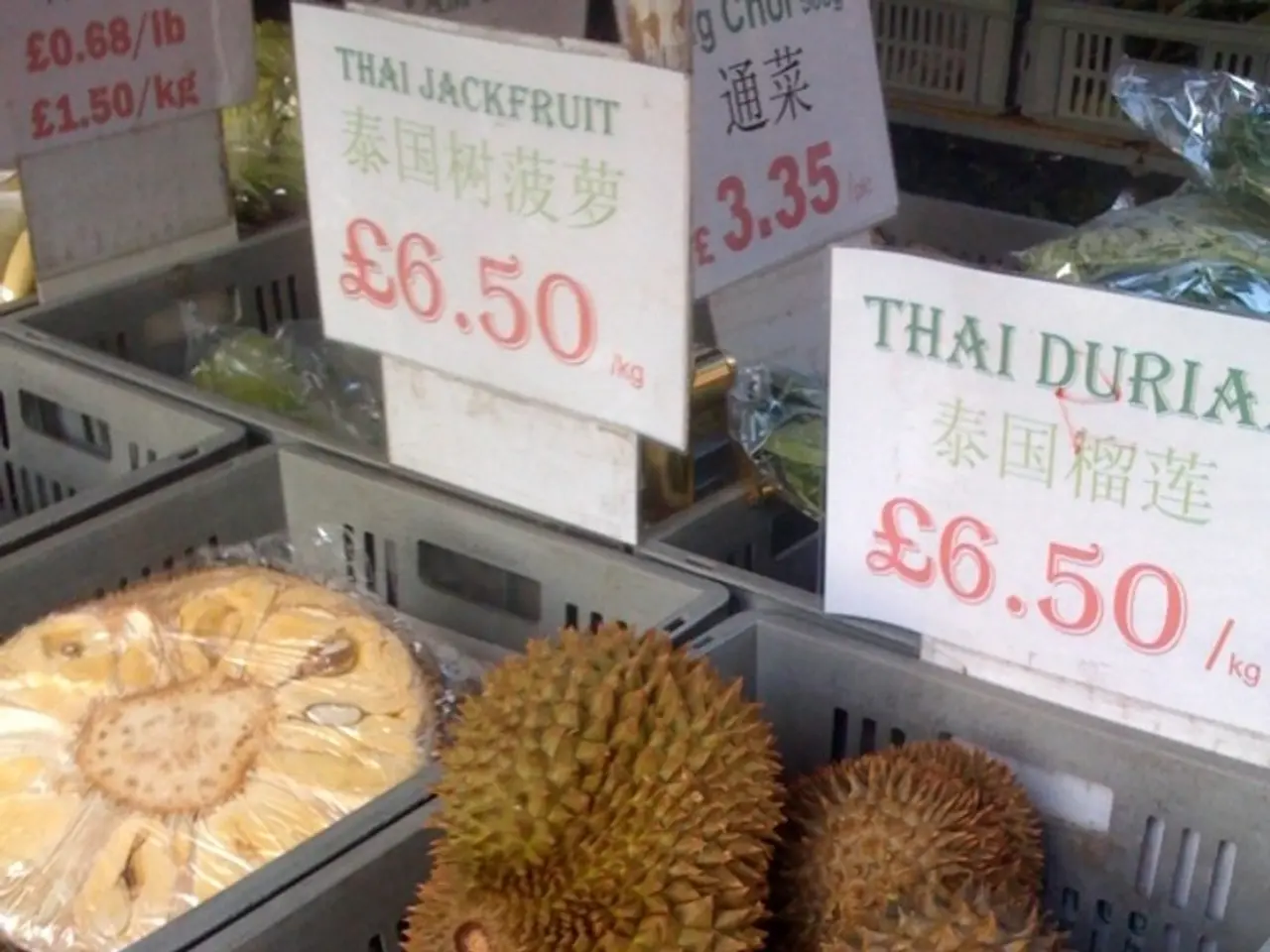Global initiative urged for reinstating agricultural commerce between Ukraine and Russia
Fast and Loose: A Call to Action on Global Food Crisis
The International Chamber of Commerce (ICC) is urging G7 governments to take the lead in a global effort to restart trade in Ukrainian grains and vegetable oils, as well as Russian and Belarusian fertilizers. This push comes amidst skyrocketing food prices and concerns of a global food shortage that could have dire consequences, particularly for developing and low-income countries.
In the wake of the war in Ukraine, food prices have hit record highs, with fertilizer prices climbing even steeper. Fear looms over potential crop yield declines in the coming years, exacerbating the already precarious situation on the global food market.
The ICC cautions that a worldwide food shortage could trigger significant economic and political repercussions for developed nations, and, worse still, could lead to a famine and debt crisis in the developing world.
Before the conflict, Ukraine was a significant contributor to the global wheat and sunflower oil supply, while Russia held the title as the largest exporter of fertilizers. Current market forecasts suggest that this supply gap may not be filled merely by tapping alternative sources or bringing new supplies online.
In response, the ICC proposes a four-pronged strategy for restoring the agricultural corridor with Ukraine, Russia, and Belarus:
- Establishing a humanitarian corridor for the safe passage of Ukrainian grain and vegetable oil exports via the Black Sea, with Russian Federation's guarantee for the safe passage of all vessels carrying agricultural products.
- Accelerating the implementation of "Solidarity Lanes," increasing railway and road transport capacity, and streamlining customs processes in neighboring countries to expedite the shipment of Ukrainian agricultural products.
- Scaling up the availability of risk guarantees for trade finance and insurance coverage for transactions with Ukraine to facilitate a swift resumption of food exports.
- Lifting European sanctions on Russian and Belarusian fertilizers and setting up a legal framework to safeguard essential nutrient trade.
John W.H. Denton AO, ICC Secretary General, declared, "We're on the brink of a catastrophic food security crisis that will severely impact the world's poorest. Revitalizing trade with Ukraine must be the G7's top priority in the coming weeks. This emergency calls for immediate political intervention."
Emmanuel Doni-Kwame, ICC Ghana Secretary General, echoed the sentiments, saying, "The Covid-19 pandemic taught us one thing: food is non-negotiable. We join forces to keep food and agricultural products free of sanctions."
As of now, the progress of the ICC's proposed efforts is not extensively documented. Geopolitical complexities, sanctions, and legal conflicts continue to complicate matters. Nonetheless, exports from Ukraine are steadily recovering, reaching nearly pre-war levels, and regional trade collaborations are progressing, potentially impacting affected supply chains. International conferences and forums are addressing agricultural market challenges in the context of the ongoing disruptions.
- The International Chamber of Commerce (ICC) has urged G7 governments to focus on reestablishing trade in Ukrainian grains, vegetable oils, Russian, and Belarusian fertilizers, which were significant contributors to the global market before the war, aiming to prevent a food shortage crisis.
- Amidst record-high food prices, the ICC emphasized that a worldwide food shortage could trigger significant economic and political repercussions, potentially leading to a famine and debt crisis in developing countries.
- A four-pronged strategy proposed by the ICC includes establishing a humanitarian corridor, accelerating the implementation of solidarity lanes, scaling up trade finance and insurance coverage, and lifting sanctions on Russian and Belarusian fertilizers to revitalize the agricultural corridor.
- The ICC's call to action comes as domestic and global news outlets increasingly report on the food crisis, with headlines covering war-and-conflicts, politics, and general-news.
- As the proposed efforts progress, finance, trade, and insurance industries will play crucial roles in facilitating the safe passage of agricultural products and ensuring their access to vital funding, thus preventing a potential economic and humanitarian disaster.
- With exports from Ukraine steadily recovering and regional trade collaborations progressing, it is essential for participating nations to maintain open lines of communication and cooperation in addressing the challenges posed by the food crisis and ensuring the stability of the global market.




